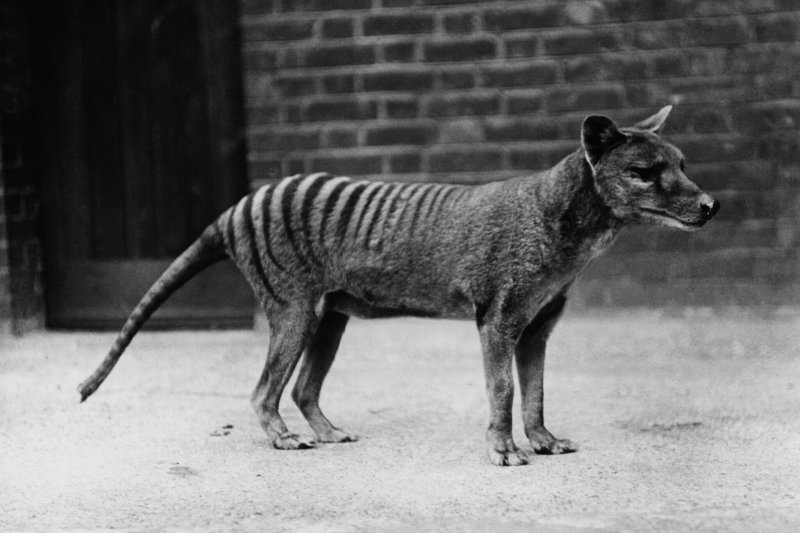Scientists in Australia and the US have launched an ambitious multimillion-dollar project to bring back the thylacine, a marsupial that died out in the 1930s, and reintroduce it to its native Tasmania.
The thylacine, also known as the Tasmanian tiger, is the second undertaking by Colossal, a Texas-based biotechnology “de-extinction” company that last year announced it planned to use genetic engineering techniques to recreate the woolly mammoth and return it to the Arctic tundra.
The scientists aim to reverse this by taking stem cells from a living species with similar DNA, the fat-tailed dunnart, and turning them into “thylacine” cells – or the closest approximation possible – using gene editing expertise developed by George Church, a professor of genetics at Harvard Medical School and Colossal’s co-founder. New marsupial-specific assisted reproductive technologies will be needed to use the stem cells to make an embryo, which would be transferred into either an artificial womb or a dunnart surrogate to gestate.
…
Colossal’s chief executive, the tech and software entrepreneur Ben Lamm, [believes pups could be born] in less than six years, the timeframe that the company had set itself to produce the first set of mammoth calves.
“I think it’s highly probable this could be the first animal we de-extinct,” Lamm told the Guardian.































